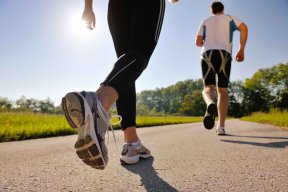
Despite their best efforts, no scientist has ever come close to stopping humans from aging. Even anti-aging creams can’t stop Old Father Time. But new research from Brigham Young University reveals you may be able to slow one type of aging — the kind that happens inside your cells. As long as you’re willing to sweat. “Just because you’re 40, doesn’t mean you’re 40 years old biologically,” Tucker said. “We all know people that seem younger than their actual age. The more physically active we are, the less biological aging takes place in our bodies.” The study, published in the medical journal Preventive Medicine, finds that people who have consistently high levels of physical activity have significantly longer telomeres than those who have sedentary lifestyles, as well as those who are moderately active.

Telomeres are the protein endcaps of our chromosomes. They’re like our biological clock and they’re extremely correlated with age; each time a cell replicates, we lose a tiny bit of the endcaps. Therefore, the older we get, the shorter our telomeres. Exercise science professor Larry Tucker found adults with high physical activity levels have telomeres with a biological aging advantage of nine years over those who are sedentary, and a seven-year advantage compared to those who are moderately active. To be highly active, women had to engage in 30 minutes of jogging per day (40 minutes for men), five days a week. “If you want to see a real difference in slowing your biological aging, it appears that a little exercise won’t cut it,” Tucker said. “You have to work out regularly at high levels.”











